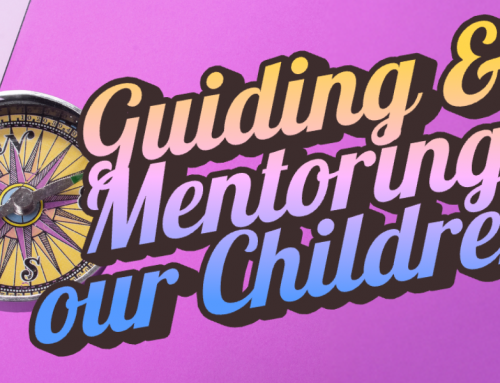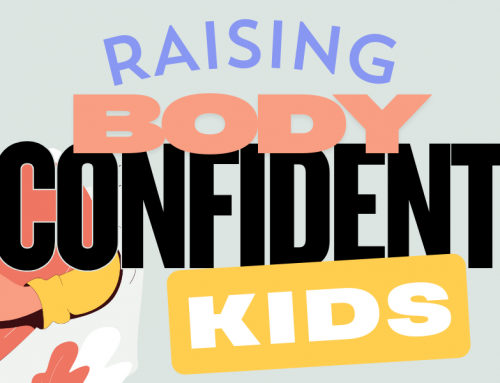 As parents, we often focus on ensuring our children excel academically, socially, and physically. However, one crucial aspect that sometimes gets overlooked is emotional resilience. Teaching our children how to navigate and bounce back from life’s challenges is a skill that will benefit them throughout their lives. It is also important that we possess these skills too. Then we can model it for our children and teach it to them. This is a wonderful topic request that I am excited to jump into!
As parents, we often focus on ensuring our children excel academically, socially, and physically. However, one crucial aspect that sometimes gets overlooked is emotional resilience. Teaching our children how to navigate and bounce back from life’s challenges is a skill that will benefit them throughout their lives. It is also important that we possess these skills too. Then we can model it for our children and teach it to them. This is a wonderful topic request that I am excited to jump into!
What is Emotional Resilience?
Emotional resilience is the ability to adapt and cope with unexpected, stressful situations in a healthy way. It involves being able to manage strong emotions, bounce back from setbacks, and maintain a positive outlook even in difficult situations.
Why is it Important?
Building emotional resilience in children is important for several reasons. It helps them develop a strong sense of self-confidence, which is crucial for navigating the ups and downs of life. It also teaches them valuable skills such as problem-solving, decision-making, and effective communication. Having emotional resilience is one of the keys to their success.
How Can Parents Teach Emotional Resilience?
Model Resilient Behavior: Children learn by example, so it’s important for parents to model resilient behavior. This includes managing your own stress and setbacks in a healthy way and demonstrating positive coping strategies. If we freak out over stressful situations, then they will follow suit. If you stay calm and talk through how you are going to work it out (out loud) then they will see and hear how to do it. One of the things I have learned is that we need to talk out loud as we think, and problem solve so that they can learn from us. If we are only thinking in our head, then they don’t know how we coped, and problem solved the issue.
Encourage Positive Thinking: Help your child develop a positive outlook by focusing on their strengths and accomplishments. Encourage them to see setbacks as opportunities for growth and learning. Tell them about how you stumbled in life and that you grew from it. Help them see the positives in situations.
Normalize Challenges: Let them know that problems, setbacks and mistakes are a normal part of life. Life is not all roses and sunshine. We are going to hit bumps. We need to know that, expect that, and teach our kids that this is a part of life that we need to learn to handle effectively.
Teach Problem-Solving Skills: Help your child develop problem-solving skills by encouraging them to think through solutions to their own problems. Offer guidance and support but allow them to take the lead. Teach them problem solving steps: Identify the problem. What are options of solutions to the problem? What are the pros and cons to each solution? Choose the solution that you think is best. Evaluate how that solution worked. If it didn’t work well, go back to your options, and pick a new solution. Keep evaluating and tweaking as necessary. The problem-solving process is one of the best things you can teach your child! Life skills at its best!
Emotional Awareness: Teach your child to identify and express their emotions in a healthy way. Encourage them to talk about their feelings and validate their experiences. My daughter came downstairs and said, “I need a hug. I’m just so overwhelmed.” I need to give her praise for having that awareness and not just lashing out. Identifying our feelings helps us to be able to manage them. If I know that I am feeling overwhelmed, then I know what to do: Make a list. Prioritize my list. Ask for help if necessary. Start attacking my list so that I feel better. Once I start making progress then I start to feel less overwhelmed. I also notice my pattern that I tend to think things take longer than they will take. If we notice patterns, it is easier to know what to expect and how to manage it.
A Supportive Environment: Create a supportive and nurturing environment where your child feels safe to express themselves and seek help when needed. We don’t want our children to be afraid to talk to us. Overreacting is the key to getting them to not want to talk to you. Staying calm and responsive (instead of reactive) is the key to a supportive environment at home. Let them know repeatedly that they can come and talk to you about anything. Give them praise when they do come to you to positively reinforce it. Make sure they have other people to talk to too. We want our kids to have a strong support system made up of multiple people.
Self Compassion: People with emotional resilience tend to be able to have self-compassion. If we use my daughter’s example above, they see that they are feeling overwhelmed and take a break. They balance their lives with self-care and social time. They know that they need time to unwind and re-energize. I see some adults and children going nonstop every day. Teach your children to have awareness that it’s time for some down time.
Internal locus of control: Control comes from within. Teach your kids that they have control over their thoughts and behavior. Feeling like you have control over your life is important for emotional resilience. Focusing on what you do have control of will make you feel a lot better than focusing on what you don’t have control of.
Teaching emotional resilience is an ongoing process that requires patience, understanding, and consistency. By instilling these skills in our children from a young age, we are setting them up for success in all aspects of their lives. It’s never too late to start teaching this to ourselves and our children. Dust yourself off, get back up, and keep going. Let us raise strong capable children who can do hard things.
Laughing, Learning, Loving,
Rebecca Greene, LCSW-R
Whinypaluza Notes:
Whinypaluza Mom Group:
If you are looking for a supportive community, come join the free Whinypaluza Mom Facebook group. I created this as I wanted us to have a place where we can talk about tips, strengths and challenges we are having. It is another step I took to help everyone to know that you are not alone. The April Spring Challenge was a lot of fun. Come join the group and bring a friend with you! I love to give away prizes. This group is private so please find me on Facebook at Whinypaluza or Rebecca Greene and message me to ask for an invite. I’m also on Instagram @becgreene5 and @whinypaluza_mom. I am also on Tik tok @whinypaluzamom.
The Whinypaluza Schedule:
Whinypaluza Wednesdays: My weekly blog comes out every Wednesday. I am always open to your topic requests. A new Vlog (video blog) also comes out every Wednesday night on Facebook and You Tube live at 9:00 PM Eastern time to discuss the blog. If you would rather listen to a podcast than watch a Vlog, you can wait for the following Wednesday and the Vlog is released on my Podcast.
Family Fridays: Every Friday morning a new Podcast is released. Most of my episodes on Fridays are me discussing parenting and marriage with experts on the topic. If you would rather watch the Podcast instead of listen, you can watch it on You Tube. If you would like to be on my Podcast or know someone who would like to please message me on Facebook or Instagram or at whinypaluzamom@gmail.com
I would so greatly appreciate it if you would subscribe, rate my Podcast and leave me a five-star review. This leads to it being shown to more people that we can help. I appreciate it when you share my blogs, vlogs and podcasts with a friend so that we can build our community and help people one mama at a time. Every time you like and/or comment on a post it helps and is so appreciated!
Please feel free to email me with suggestions for topics that you would like me to cover. I would also love to hear about any lessons or takeaways that you learned from blogs, vlogs or podcasts that Whinypaluza releases. I hope that you are finding all this helpful and seeing that you are never alone. We are in this parenting and marriage ride together. xoxo








